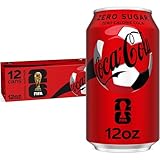Exercise Daily _ Low Calorie Snacks For Night Cravings
Nighttime cravings can be a significant hurdle for those trying to maintain or lose weight. As the day winds down, many individuals find themselves reaching for snacks that are typically high in calories and low in nutritional value. However, not all snacks are created equal; there are plenty of low-calorie options that can satisfy your cravings without derailing your health goals. In this article, we will explore various low-calorie snacks for night cravings, discuss common misconceptions, and provide evidence-based recommendations.
The Science Behind Nighttime Cravings
Understanding why nighttime cravings occur is crucial in addressing them effectively. Several factors contribute to these cravings, including:
- Hormonal Changes: Hormones such as ghrelin and leptin regulate hunger and satiety. Research shows that these hormones can fluctuate throughout the day, often leading to increased hunger in the evening (Berkelaar et al., 2014).
- Psychological Factors: Emotional eating can play a significant role in nighttime snacking. Stress, boredom, or fatigue may drive individuals to snack for comfort rather than hunger.
- Circadian Rhythms: Our body’s internal clock can influence cravings. Studies have indicated that people may feel hungrier at night due to circadian rhythms affecting metabolism (Cao et al., 2018).
Recognizing these factors can help you make informed choices about your snacks. Now, let’s delve into some nutritious, low-calorie options that can satisfy nighttime cravings.
Top Low-Calorie Snacks for Nighttime Cravings
1. Greek Yogurt with Berries
Greek yogurt is an excellent source of protein and probiotics, making it a nutritious choice for a nighttime snack. Combining it with berries adds natural sweetness and fiber without significantly increasing the calorie count.

A typical serving of Greek yogurt (150g) contains about 100 calories, while a half-cup of mixed berries adds another 40 calories. This combination provides a satisfying snack for around 140 calories, rich in protein and antioxidants.
2. Air-Popped Popcorn
Popcorn can be a low-calorie snack if prepared correctly. Air-popped popcorn contains only about 30 calories per cup and is high in fiber, making it a filling option for late-night munchies. Avoid butter and excessive salt to keep the calorie count low.
“Popcorn is a whole grain and can be a healthy snack when consumed in moderation and prepared without excessive fats or sugars.”
For added flavor, consider seasoning with herbs, spices, or a sprinkle of nutritional yeast, which can provide a cheesy taste without the calories.
3. Vegetable Sticks with Hummus
Fresh vegetables like carrots, celery, and cucumber paired with hummus make for a crunchy, satisfying snack. This combination is nutritious, providing fiber, vitamins, and healthy fats.
- Carrots (1 cup): 50 calories
- Celery (1 cup): 16 calories
- Cucumber (1 cup): 16 calories
- Hummus (2 tablespoons): 50 calories
This snack totals around 132 calories, ensuring you stay within a low-calorie range while enjoying a variety of flavors and textures.
4. Cottage Cheese with Pineapple
Cottage cheese is another protein-rich snack that can help curb nighttime cravings. It pairs well with pineapple for added sweetness and flavor.
A half-cup of low-fat cottage cheese contains about 90 calories, while a half-cup of pineapple adds around 40 calories. This combination offers a filling snack for approximately 130 calories.
5. Rice Cakes with Almond Butter
Rice cakes are a versatile snack that can be topped with various spreads. A thin layer of almond butter adds healthy fats and protein without overwhelming the calorie count.
One rice cake has about 35 calories, and one tablespoon of almond butter adds around 98 calories, bringing the total to approximately 133 calories. This snack can satisfy cravings while providing energy and nutrients.
Common Misconceptions About Nighttime Snacking
Despite the availability of healthy options, many people still hold misconceptions about nighttime snacking. Let’s dispel some of these myths:
Myth 1: Eating at Night Causes Weight Gain
One of the most pervasive myths is that eating at night leads directly to weight gain. The reality is that weight gain results from consuming more calories than your body expends, regardless of the time of day. Research indicates that the timing of food intake may not significantly affect weight management (Klempel et al., 2016).
Myth 2: Low-Calorie Snacks are Not Satisfying
Another common belief is that low-calorie snacks are unfulfilling. However, many low-calorie options, particularly those high in protein and fiber, can be quite satiating. Foods like Greek yogurt and cottage cheese provide protein that promotes feelings of fullness.
Myth 3: All Carbs at Night are Bad
Some individuals believe that consuming carbohydrates at night is detrimental. While it’s true that certain carbs can lead to spikes in blood sugar, choosing complex carbohydrates, like whole grains or fruits, can provide sustained energy without negative effects on weight or health.
The Role of Mindfulness in Snacking
Mindful eating can play a significant role in how you approach nighttime snacking. By being aware of your hunger cues and the reasons behind your cravings, you can make more informed choices. Here are a few tips for practicing mindful snacking:
- Listen to Your Body: Before reaching for a snack, ask yourself if you are genuinely hungry or simply bored or stressed.
- Portion Control: Serve snacks in small portions to prevent overeating. Using smaller plates or bowls can help manage portion sizes.
- Limit Distractions: Avoid eating in front of the TV or computer. Focus on your food to enhance your eating experience.
By incorporating mindfulness into your snacking habits, you can reduce the likelihood of overeating and make healthier choices.
Conclusion
Nighttime cravings can be challenging, but opting for low-calorie snacks can help you stay on track with your health goals. It’s essential to debunk common myths surrounding nighttime eating and to understand the factors that contribute to cravings. By choosing nutritious options like Greek yogurt with berries, air-popped popcorn, or vegetable sticks with hummus, you can effectively manage your cravings without compromising your health.
Remember, the key to successful nighttime snacking lies in making informed choices and practicing mindfulness. For more tips on nutrition and fitness, explore our other articles on nutrition and fitness.
As always, these recommendations are for informational purposes only. Consult your doctor and do your own research before use.
- Berkelaar, E., et al. (2014). Hormonal changes and food intake.
- Cao, Y., et al. (2018). Circadian rhythms and metabolism.
- Gunnars, K. (2019). The health benefits of popcorn.
- Klempel, M. C., et al. (2016). Timing of food intake and weight management.
Eat daily, sleep daily, exercise daily.











